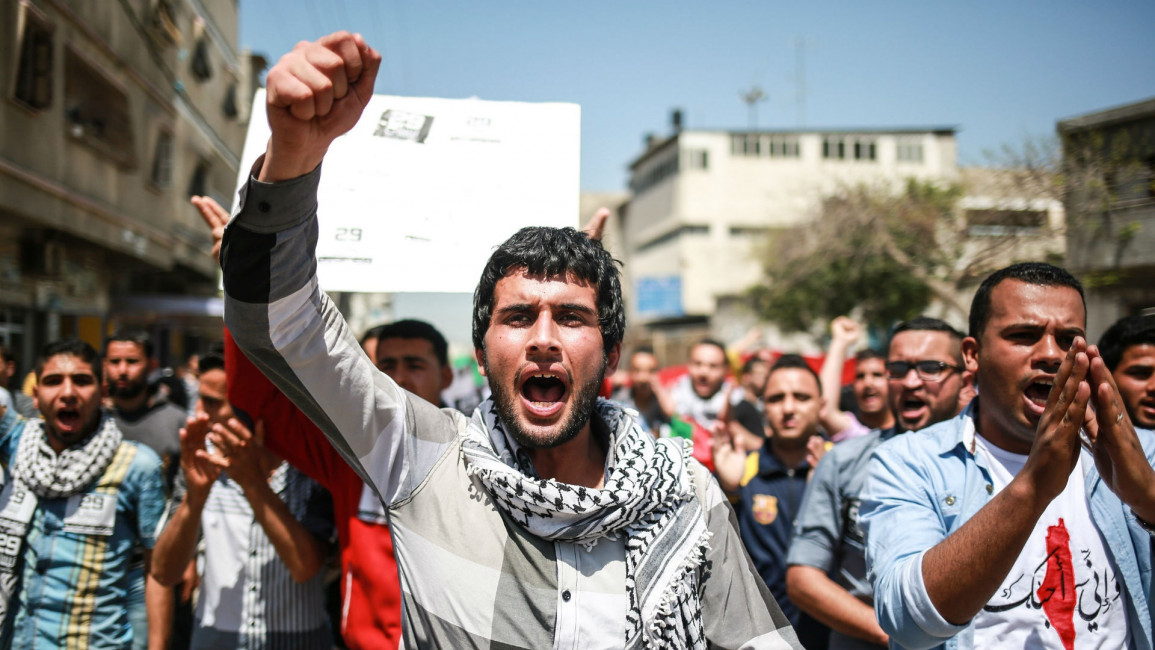Palestinian unity government resigns
Palestinian PM Rami Hamdallah submitted his resignation to President Mahmoud Abbas on Wednesday.
"Hamdallah handed his resignation to Abbas and Abbas ordered him to form a new government," Nimr Hammad, an adviser to Abbas said.
Discussions to form a new government would include consultations with the various Palestinian factions, including Hamas, he said.
Officials have said the planned dissolution of the government, made up of technocrats, had been under discussion for several months because of the cabinet's inability to operate in the Hamas-dominated Gaza Strip.
But it also came as Hamas sources said the Islamist movement was holding separate, indirect talks with Israel on ways to firm up an informal ceasefire agreement that took hold last August, ending a 50-day Isareli war on Gaza.
Some have argued that news of the secret talks prompted Abbas to move to dissolve the unity government.
The resignation is a heavy blow to a Palestinian unity agreement signed in April 2014 which sought to end seven years of bad blood between Abbas's Fatah movement and its rival, the Islamist Hamas movement.
"Within 24 hours the Palestinian government will resign," Abbas told members of the Fatah Revolutionary Council, according to several senior officials who attended the Tuesday evening meeting in the West Bank city of Ramallah.
| The resignation came as Hamas confirmed it was holding indirect talks with Israel. |
Hamas ruled Gaza for seven years, but its administration stepped down last June when the Ramallah-based consensus government was sworn in.
Comprised of independent technocrats, the government lineup was agreed by both Fatah and Hamas and given a mandate to govern both the West Bank and Gaza, ending seven years of separate administrations.
But in practice, it has been unable to extend its authority to Gaza, which was devastated by a deadly 50-day Israeli onslaught last summer and where Hamas remains the de facto power.
A Palestine Liberation Organisation official said the new government was likely to be one of politicians rather than technocrats.
Hamas 'not consulted'
Hamas reacted with indignation to such a move.
"Hamas rejects any one-sided change in the government without the agreement of all parties," Hamas spokesman Sami Abu Zuhri told AFP.
"No one told us anything about any decision to change and no one consulted with us about any change in the unity government. Fatah acted on its own in all regards."
The government's inability to exert its authority in Gaza has been a major point of internal dispute between Fatah and Hamas.
It has also slowed down the vital process of rebuilding Gaza after last summer's devastating Israeli war on the strip.
The government had been expected to play a key role in the reconstruction of the territory by reasserting its authority in Gaza and taking over the border crossings with Israel and Egypt.
But with the two sides increasingly divided over a long-running dispute about employees, it never happened.
Officials did not say whether the consultations to form a new government would include Hamas.
A government source confirmed that the idea of resigning had been discussed for weeks.
"There have been discussions inside the government about resigning if they are unable to do anything for Gaza," he said.
He added that the move had been on the table since a government delegation was forced to cut short a trip to Gaza in late April.
The 40-strong delegation, including eight ministers, arrived in Gaza on April 19 for a week-long trip but was forced to leave a day later after Hamas accused the officials of bias in resolving a dispute over employees' salaries.
The formation of the consensus government was the first fruit of an April 2014 reconciliation agreement between Hamas and Fatah which sought to end seven years of bad blood between the two Palestinian nationalist movements.



